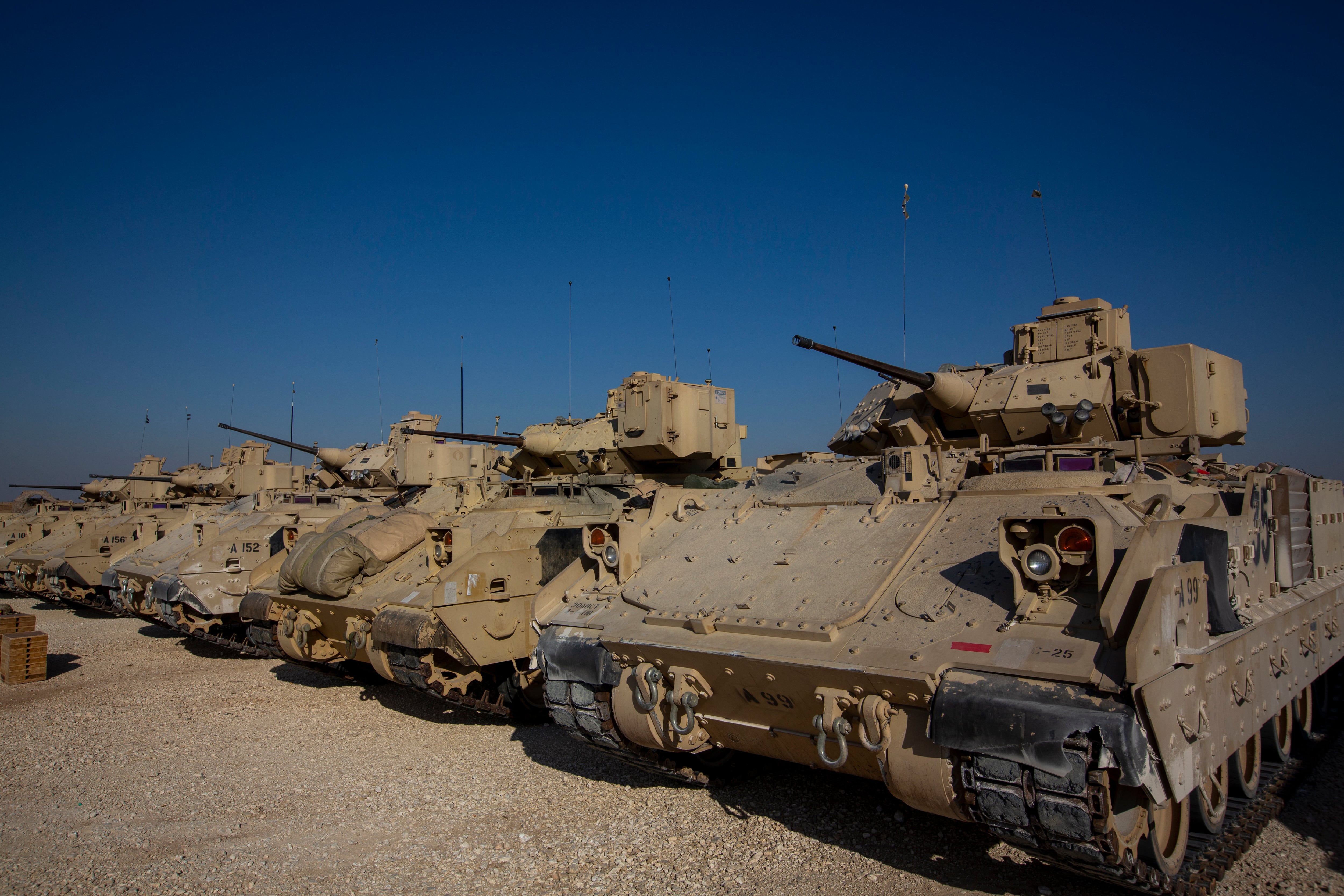WASHINGTON — The U.S. Army on Friday issued a draft request for proposals for the preliminary design phase of its delayed optionally manned fighting vehicle, or OMFV, the first major step in a relaunched competition to replace the Bradley Infantry Fighting Vehicle.
The preliminary phase will be open for 40 days, with the goal of gathering industry feedback ahead of the final RFP, which will come later this year. That final RFP will award of up to five design contracts in June 2021, setting the next stage in the competition.
“As we continue to progress through the first phase of our five-phased approach for the OMFV program, communication, inclusive feedback and innovative thinking from industry remains key,” Maj. Gen. Brian Cummings, the Army’s program executive officer for ground combat systems, said in a statement. “We are looking forward to receiving feedback and learning from industry what’s in the realm of the possible as we continue to develop this truly transformational vehicle for our Soldiers.”
Added Brig. Gen. Ross Coffman, director of the Next Generation Combat Vehicles Cross-Functional Team: “Accurately defining the desired set of capabilities without over-constraining the design is critically important.
“The Army is committed to open communication with industry to ensure the characteristics and eventual requirements of the OMFV are informed by technological advances.”
The focus on gathering industry feedback should not be a surprise, given the recent history of the program. When the OMFV program was conceived, the Army planned to hold a prototyping competition, selecting two winning teams to build prototypes with a downselect to one at the end of an evaluation period.
But in October, the Army ended up with only one bidder in the OMFV competition — General Dynamics Land Systems — after other competitors dropped out, citing requirements and schedule concerns.
As a result, the Army in January announced it would be relaunching the program to ensure more competition going forward — a decision that led to service leaders taking heat from Congress during testimony in March. OMFV is the first large acquisition effort to come out of Army Futures Command.
The draft RFP, posted on a government contracting website Friday, drives home the point by stating: “To permit industry design freedom and promote innovation, the Army has avoided quantifying or prescribing critical levels of performance wherever possible.”
“We do not want to box industry into a solution,” Cummings said. “We want to incentivize industry as they lean forward and think creatively to bring the Army innovative technologies and solutions necessary to achieve our vision — both in terms of the ability to integrate newer technology we are seeing today and leaving space for future growth on the OMFV platform.”
Aaron Mehta was deputy editor and senior Pentagon correspondent for Defense News, covering policy, strategy and acquisition at the highest levels of the Defense Department and its international partners.




